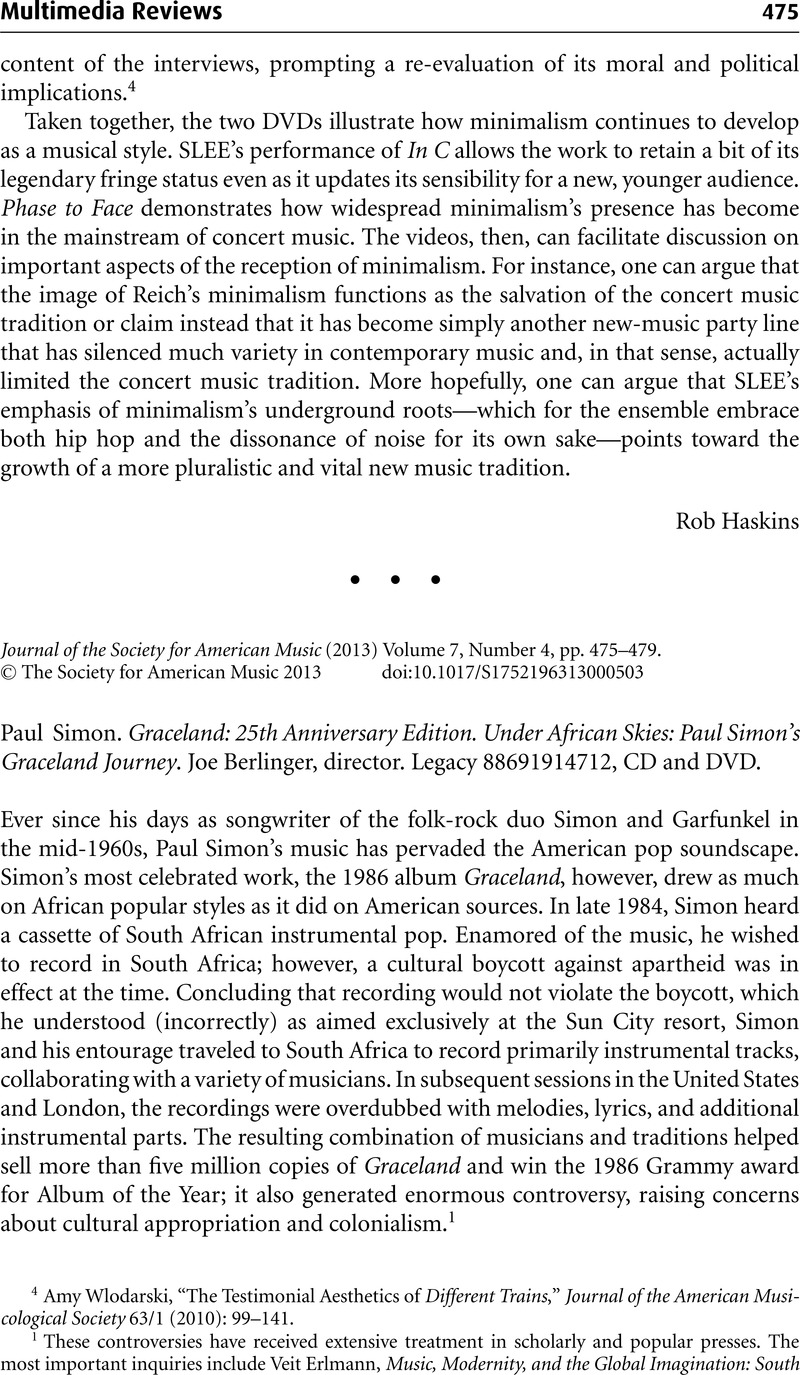No CrossRef data available.
Published online by Cambridge University Press: 31 October 2013

1 These controversies have received extensive treatment in scholarly and popular presses. The most important inquiries include Erlmann, Veit, Music, Modernity, and the Global Imagination: South Africa and the West (New York: Oxford University Press, 1999)CrossRefGoogle Scholar; Hamm, Charles, “Graceland Revisited,” Popular Music 8/3 (1989): 299–304CrossRefGoogle Scholar; Meintjes, Louise, “Paul Simon's Graceland, South Africa, and the Mediation of Musical Meaning,” Ethnomusicology 34/1 (1990): 37–73CrossRefGoogle Scholar; and Timothy Taylor, “The Voracious Muse: Contemporary Cross-Cultural Borrowings, Culture, and Postmodernism” (Ph.D. diss., University of Michigan, 1993).
2 Paul Simon, Graceland, Warner Brothers 25447-1, 1986, LP.
3 Drewett, Michael, “The Cultural Boycott Against Apartheid South Africa: A Case of Defensible Censorship?” in Popular Music Censorship in Africa, eds. Drewett, Michael and Cloonan, Martin, (London: Ashgate, 2006), 27Google Scholar.
4 See, for example, Jon Pareles, “Concert: Simon's Graceland,” New York Times, 27 April 1987; “South African Pop Breaks Out,” New York Times, 8 February 1987; and “How African Rock Won the West, and on the Way Was Westernized,” New York Times, 8 November 1989.
5 See Marshall Ward's interview “Viva Los Lobos! (Interview with Steve Berlin),” Rock Cellar Magazine, http://www.rockcellarmagazine.com/2012/07/17/viva-los-lobos-interview-with-steve-berlin.
6 VH1 Classic Albums: Paul Simon Graceland, Jeremy Marre, director, Eagle Rock Entertainment EV30100-9, 1997 (reissued 2005).
7 Graceland: The African Concert, Michael Lindsay-Hogg, director, Warner/Reprise Video WRV 38136, 1987 (reissued 1999).